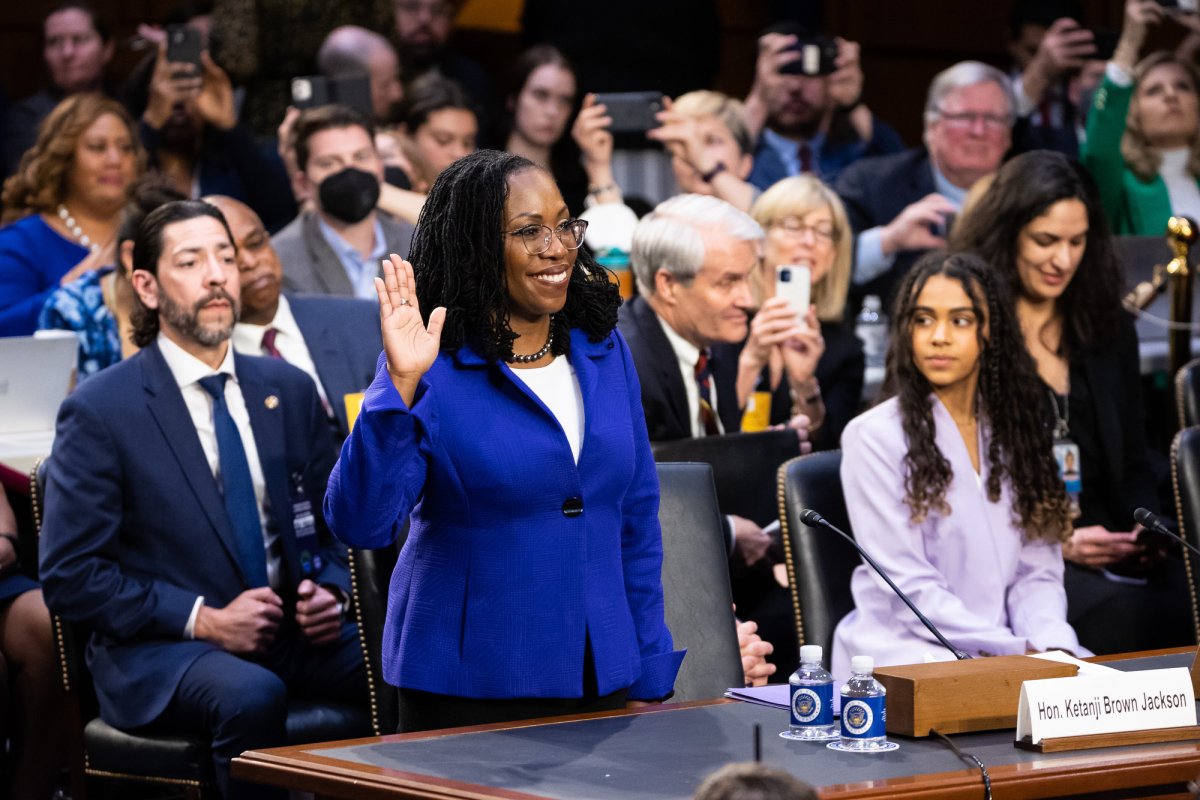
Weary (and Wary) of Decisions, Opinions, and Polemics? Religious Wisdom Would Like a Word
Religion that is prescribed by a privileged few to control the lives of the many obfuscates human dignity, limits and cheapens life abundant, substitutes the trivial for the transcendent, and elevates a cruel justice that cannot admit its need for mercy.
By Cynthia G. LindnerJuly 1, 2022
When Judge Ketanji Brown Jackson was sworn in as the newest Supreme Court justice at noon on Thursday, June 30—the last day before the Court’s summer recess—she became the first Black woman ever to serve on the court and its 116th justice, taking the bench 232 years after the court’s first convening. Judge Jackson’s historic addition to the court in the final hour of a tumultuous season of idiosyncratic judicial opining offers a glimmer of hope—hope that change is yet possible for the court and for our country; hope not only for a more diverse and inclusive court (and culture), but for a more deliberate and discerning one.
Judge Jackson was introduced to the American public last March, chiefly through the spectacle of her confirmation hearing before the Senate Judiciary Committee. Her dignified demeanor, her thoughtful clarity, and her respectful self-restraint in the face of farcical partisan rhetoric won approbation on all sides of our contemporary cultural chasm. Jackson’s grounded and graceful response to Sen. Lindsay Graham’s questioning about her own religious convictions was particularly probative, an indicator of her spiritual maturity and a model of faithful presence in our fractious plural public square.
At the hearing’s outset, the nominee had stated her belief in God and her gratitude for divine blessings: “I must also pause to reaffirm my thanks to God, for it is faith that sustains me at this moment,” she said. “Even prior to today, I can honestly say that my life has been blessed beyond measure.” Friends and law school colleagues recognized Jackson’s characteristic expressions of gratitude, noting that while Ketanji Brown Jackson publicly expresses thanks to God, she keeps the particularity of her religious alignments to herself. “The way that we express our faith is not just through words but by actions,” said Harvard law school classmate Njeri Mathis Rutledge, who noted that though Jackson’s friends knew her to be a woman of strong faith, that faith was evident in her compassion and her integrity and not by proclamation, insistence, or assertion.
The significance of Jackson’s principled practice of forbearance and self-restraint was lost on Senator Graham, however, who badgered the nominee for identity markers and loyalty tests during the Senate committee’s televised hearing, demanding the particulars of her religious affiliation (“what faith are you, by the way?”) and repeatedly asking for quantification of the nominee’s commitments in order to inflict some comeuppance on his own political opponents (How important is your faith? How faithful are you, on a scale of 1-10? How often do you go to church? Can you fairly judge a Catholic?) Mercifully, Jackson herself put an end to the blatant pandering and politicking by explaining, “Senator, I am reluctant to talk about my faith in this way just because I want to be mindful of the need for the public to have confidence in my ability to separate out my personal views.” Deeply rooted faith does not demand public approval, but rather honors the complexity of human life in community.
Last week’s Supreme Court could learn a great deal from their newest colleague’s practice of faith made manifest in gratitude, humility, and self-control rather than by decree and domination, and her willingness to prioritize the public’s trust above the loud assertion of her own beliefs and belongings. Over a handful of days, the court has repeatedly promulgated a misbegotten belief system derived from an irresponsible conflation of religion, Constitution, and conservatism and confused, simplistic appeals to such impossibly complicated concepts as “liberty,” ”safety,” and even “life” itself. Last week’s decision in the case of New York State Rifle and Pistol Association v. Bruen reinforced the notion (against all scientific evidence but championed by the gun industry) that more guns on the street make the public safer. A day later, the court’s determination in the case of Dobbs v. Jackson Women’s Health Organization constrained an essential aspect of self-determination for slightly over half of the US population, privileging a definition of life that is reductive at best and cruel at worst. At the same time it dealt these significant blows to religions’ deeply-rooted and widely-held values of interdependence, compassion, and human dignity, the court defended that which it deemed “religion” in its most particular forms, ordering a Maine public school district to include religious schools in its voucher program and siding with a high school football coach in Bremerton, Washington, whose prayers in public on the fifty yard line following every football game had caused tensions in his community, resulting in his firing.
What sense, what guidance, and what comfort is a demoralized and divided citizenry—beset by viruses, violence, and vituperative leaders in civic and religious spaces alike—to derive from these seemingly idiosyncratic and contradictory rulings? Is this, as the New York Times continues to pronounce, “an extraordinary winning streak for religion” in the “most pro-religion court since the 1950’s”? Or has the highest court in the land finally succumbed to the same cynical idolatry that has eroded so much of our public life, reducing the vibrant, disciplined, creative practice of our wisdom traditions to an unholy rendering of “religion” as the unexamined promotion of a single story, a simplistic definition, a one-size-fits all anthropology, blessed by a god who looks a great deal like Uncle Sam, bereft of either justice or mercy?
The court’s reputed “turn towards religion” should not be cause for celebration among the faithful. Indeed, the court’s cynical reduction of religion to a commodity that can be measured, funded, permitted (or not), or legislated should be a stark reminder to communities of faith to recognize, reclaim, and hold dear the real “goods” of religious life. Faith is not about the certainty of our worldviews, our norms, our moral standards. Rather, the religious life is a continual invitation to see the world and ourselves not simply through the eyes of our creaturely fear and anxiety but through the eyes of faith, with the curiosity, compassion, and courage that is our true human inheritance, and the power and responsibility to discern what is beautiful, good, and true—each of us for ourselves, in company and in conversation with our traditions, our neighbors, and with those on the margins or at a distance from our communities, as well.
In the US today, persons practice their religion by the lights of over one hundred different traditions. Within each one of these communities of practice, there are multiple and often conflicting understandings of such complicated issues as gun control, abortion, what constitutes a religious education, and how one conducts one’s private prayers—and for good reasons. This multiplicity, complexity, contradiction, and variety is not religion’s weakness, but its true genius—the means by which religious practice cultivates wisdom that is vital and vibrant. Religion that is prescribed by a privileged few to control the lives of the many obfuscates human dignity, limits and cheapens life abundant, substitutes the trivial for the transcendent, and elevates a cruel justice that cannot admit its need for mercy. At their best, religious communities and their practitioners are deeply rooted and broadly based, immersed in the spiritual disciplines of study and ritual practice that are constant sources of wisdom, compassion, understanding, and justice-making. They know that it is impossible and unholy to legislate loving one’s neighbor, or to command that someone else “choose life”—that life and love are not commodities to be owned, forced, or prescribed, but that these mysterious and elusive ”goods” must be cultivated, prayerfully and intentionally, every day and all the time, lifelong.


